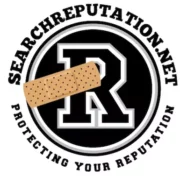You have a right to believe that your business is excellent at what it does–and perhaps that it’s even better than the competition. After all, you have likely spent a considerable amount of time, effort and money to make it so. However, a personal bias toward one’s business or oneself can actually adversely affect reputation management for a business.
How to do Reputation Management
Today it is completely normal, even expected, that before a customer chooses to purchase any products or services they will do some research online. This is why it is absolutely essential for a business to establish and maintain a strong online presence. And because even a single negative review, whether honest, accidental or fabricated, can cause considerable damage to a business, reputation management for a business is absolutely essential. However, since a business’ online reputation management can quite literally change what people see when they run searches online, one is presented with a bit of a dilemma. How can one effectively and honestly communicate what their business is about, without personal bias?
A business should keep their focus on their customers and how they are seeking to help improve their customers’ lives. Reaching out to and interacting with customers can allow one to build their online reputation without allowing it to become too heavily swayed by their own personal bias. You may be very good at what you do, but instead of focusing on tooting your own horn, focus on how you can help your customers.
Another thing you will have to come to terms with is honest, negative reviews. Your personal bias may sway you to believe that no one should truly be able to write any sort of negative review about your business, especially if you pride yourself on your excellent customer service. It’s true, it can be frustrating when a customer provides even the mildest form of negative feedback about something that is out of your control (like the heat of the sun when they choose to sit outside at your restaurant) or that was handled as soon as they brought it to your attention (like a tear in a new shirt they purchased and that you already refunded and replaced). However, the fact is that these honest, negative reviews make your business real to other consumers. Absolutely, work hard to obtain the honest, positive reviews that you know you deserve–these will help to offset any negative reviews you receive. But don’t try to erase all the honest, negative reviews you receive. Consumers are actually incredibly wary of a business that seems perfect–they assume that reviews have been fakes or tampered with. Negative reviews may even be able to help boost your reputation, if you use them as an opportunity to be totally transparent–responding quickly and openly, apologizing for any mistakes that were made and offering to help set them right. That said, you most definitely have a right and responsibility to fight hard for removal of entirely false and slanderous reviews.
Being Honest
Consumers have a right and a desire for honesty and transparency. When considering whether your online reputation is honest, ask yourself these questions:
● Is it clear who we are and what we stand for?
● Are we seeking to succeed through harming others or on our own merit?
● Do we have enough honest, positive reviews that they can work to fight against the honest, negative reviews we also have?
If you answer yes to all three of these questions, you may be succeeding in managing your online reputation without much personal bias. For more reputation management tips, contact us today.
